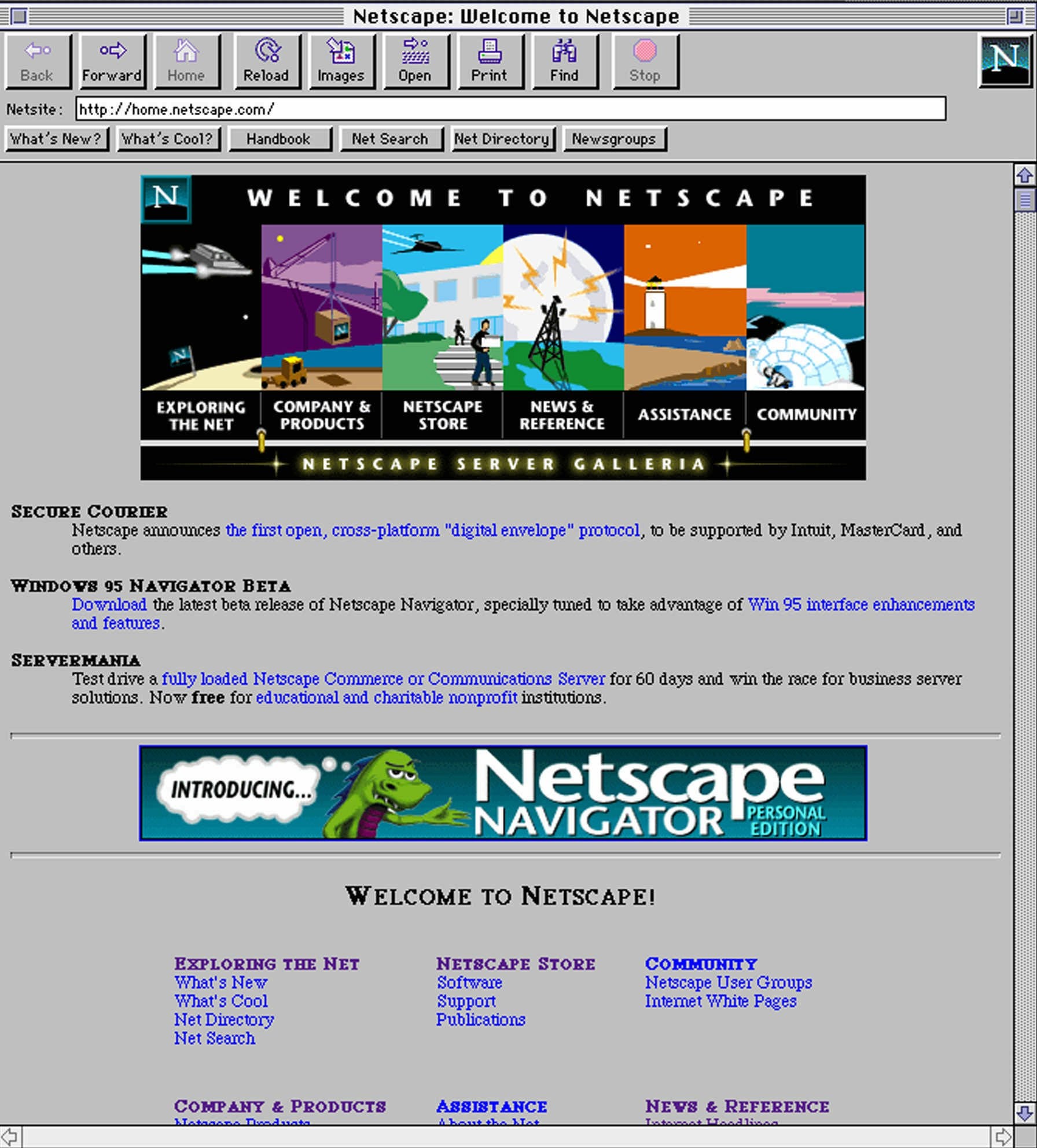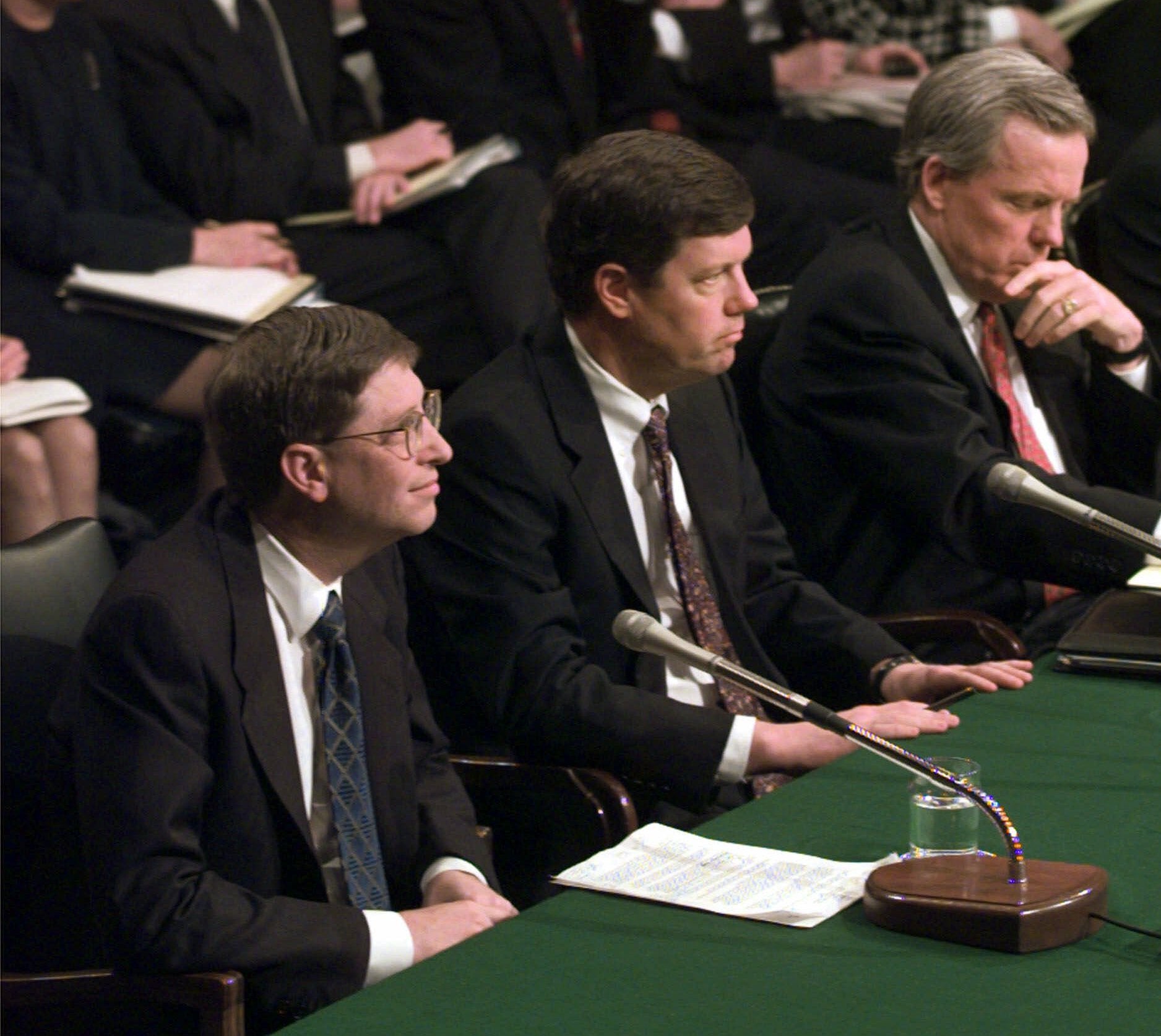Netscape changed the internet—and the world—when it went public 20 years ago
Rosanne Siino finds it amusing when students interrupt one of her lectures at Stanford University to ask: “So, what is Netscape?”


Rosanne Siino finds it amusing when students interrupt one of her lectures at Stanford University to ask: “So, what is Netscape?”
“Wow, how long has it been?” Siino, one of the first hires at Netscape, recalls telling a student. “Boy, you have no idea how much the world changed just before you were born.”
It was 20 years ago today that Netscape went public, setting off what we now know as the first dot-com boom.
On the day of its IPO, investors’ appetite for Netscape was insatiable. So great was the imbalance in demand that trading was delayed by almost two hours. In its office in Mountain View, California, employees were directed not to pay attention to the stock. “It was like saying don’t notice the pink elephant dancing in your living room,” Siino, then Netscape’s vice president of communication, tells Quartz.
Shares, priced at $28, shot up to $74.75 mid-day and closed at $58.25. Suddenly, this unprofitable 16-month-old internet startup was worth nearly $3 billion, turning its 24-year-old cofounder, Marc Andreessen, into an overnight millionaire. At the end of the day, Siino says she was in “stunned disbelief.”
Opening up the web

Before Netscape Navigator, the internet was an abstract concept, used primarily by the military and academia.
“I’m not sure the internet meant anything to people,” says Mozilla Foundation chairwoman Mitchell Baker, who had joined Netscape in 1994. “I think many people had not heard of it and didn’t know what it was. It had no impact and influence.”
But Netscape’s graphical interface made the web accessible to everyday people. “This was the gateway to the early web,” says W. Joseph Campbell, an American University professor whose book 1995: The Year the Future Began chronicles Netscape’s rise. “It was a cool company with a great name. Netscape—back in the mid ’90s, it evoked this wide open frontier with all sorts of possibilities.”
Josh Quittner, who co-authored Speeding the Net: The Inside Story of Netscape and How It Challenged Microsoft, says other browsers were emerging at the time, but Netscape succeeded early on because it “did everything right.” (At one point, the browser claimed 90% of the market.)
“It was easy to use,” says Quittner. “It made pages viewable to people. It unlocked this mysterious world for normal folks, and the whole world changed.”
Still, few people could imagine the internet would have such an impact—on the tech industry, the global economy, and how people access information today.
“I recall doing some of the first demonstrations, which were pretty crude,” says Siino, who had advised Netscape cofounder Jim Clark at his previous company Silicon Graphics. ”The idea that we could be living online the way we do—that I’d be carrying a computer in my pocket that I’d be doing so much of my crucial work on—is crazy to me.”
An early pioneer of tech arrogance
Netscape had a certain air of irreverence that piqued the media’s intrigue and helped shape Silicon Valley culture. The company was loud, brash, and obnoxious, and it didn’t care about playing by others’ rules.
Take its IPO for example. Today, it’s become the norm that a venture-backed tech company would remain unprofitable at the time of its IPO (see: Amazon, Tesla, Twitter, Pandora, etc.). But in the mid-’90s, “you had to have a track record, typically two to three years of existence, show some profit potential if not actual profit,” says Campbell. “Netscape broke the bonds on those kinds of expectations. It was only 16 months old, giving away its product largely, and never turned a profit.”

All of the excitement surrounding Netscape eventually caught Microsoft’s attention. A week after Netscape’s IPO, the software giant in Redmond, Washington released the first version of Internet Explorer, kicking off the browser wars of the ’90s.
Netscape’s cofounder Clark responded by likening Microsoft to the Death Star, a space station in Star Wars that could destroy an entire planet with its laser. Jim Barksdale, Netscape’s CEO at the time, famously said: ”It’s going to be a dogfight, but we think we have God on our side.”
But it was hard to outmuscle Microsoft, which gained market share by bundling Internet Explorer with its Windows operating system. Netscape tried to make inroads into corporate desktops. The problem, says Quittner, was that it ”produced a product that for all intents and purposes was indistinguishable from Microsoft—and of course Microsoft was going to win that war.” Though a federal court ruled in 2000 that Microsoft was in violation of antitrust practices, it was too late to save Netscape. Five years after acquiring the browser, in 1998, AOL quietly euthanized the brand.
Netscape’s legacy
Its influence, however, lives on. A slew of the core technologies Netscape developed are still widely used today, including the programming language Javascript and Secure Sockets Layer (SSL), a protocol for passing data between web servers and browsers privately.
But Netscape also gave rise to tech companies like Mozilla. In the midst of the browser wars, Netscape decided to open source the code to its browser so others could contribute to it. “That was the birth of Mozilla within Netscape,” says Baker, Mozilla’s chairwoman. AOL continued Mozilla’s development after shuttering Netscape, and spun it out as its own entity in 2003 with $2 million in funding. From Netscape’s ashes emerged the Mozilla Foundation and, eventually, the Firefox browser.
Flipboard, the news-reading app, can also trace its story back to Netscape. Mike McCue, whose company Paper Software was acquired by Netscape in 1996, created Flipboard in 2010 to give people a better reading experience that would also drive revenue for media companies. “With the advent of phones and tablets, he set out to create a better way to browse that was very deliberately and consciously an attempt to improve the browser experience that Netscape had broken the ground on,” says Quittner, who currently serves as Flipboard’s editorial director.
But Netscape’s biggest contribution will be introducing the internet to millions of people.
“It was heartbreaking to see our company go away,” says Siino. “We know what we did. We know the revolution we created. That’s something I will never forget.”